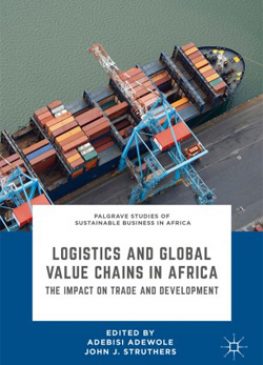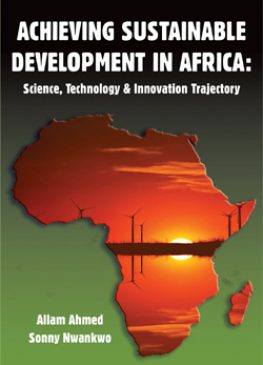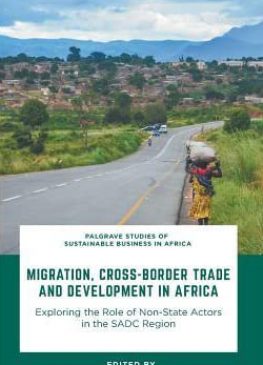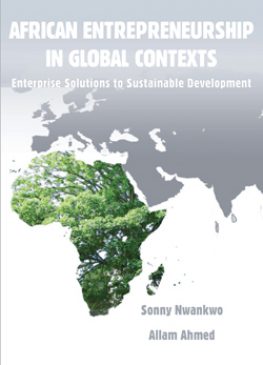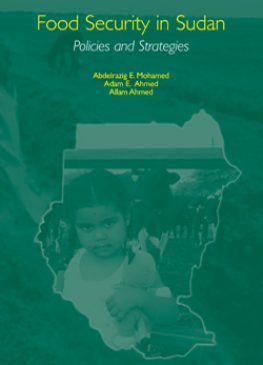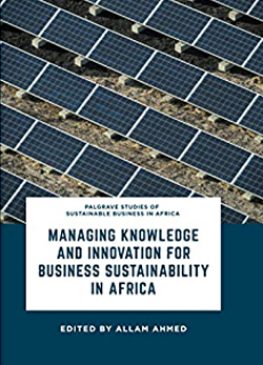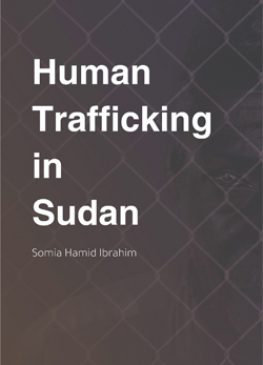Palgrave Studies of Sustainable Business in Africa is published in partnership with Palgrave Macmillan, this series aims to provide a global perspective and understanding of international business as a context for sustainable business practices in Africa. Titles provide new methodologies through which goods and services are produced and managed using sustainable business practices in Africa, as well as a sound grounding in the terminology of sustainable business. In doing so, this series develops a number of tools of analysis in order to conceptualize various business and management theories that can be used to address the challenges posed to the development of African businesses. Adopting and adapting western business and management theories, it provides a practical application of various theoretical and practical frameworks in order to develop new ways of doing business in Africa.
Featuring case studies, ground-breaking research and new conceptual approaches, the Palgrave Studies of Sustainable Business in Africa series includes contributions from a range of African scholars and leaders of major African academic and research institutions, as well as scholars from around the world. The merging of these perspectives will examine how the future of African business and management should be shaped in order to better address the needs of African business development both now, and for future generations.
Series theme Guidelines for authors
Gum Arabic: Trade, Food Security and Sustainable Development
 This book will focus on all what you need to know about “Gum Arabic” particularly issues relating to Trade, Food Security, and Sustainable Development. The book will explore the international trad aspect of Gum Arabic, food security, economic, social and environmental challenges relevance of the Gum Arabic platform, with a focus on the significant challenges and opportunities of producing countries like Sudan. The main aims is to address the question of how Sudan can realises its potential of being the leading country in the world in the production of Gum Arabic and achieve the UN Agenda 2030. In doing so, the book will critically analyse the potential for the growth of Sudan’s Gum Arabic sector, the challenges for realising its potential, so that Sudan can become, if not an international leader in the production and export of Gum Arabic. The book puts together, for the first time, original and cutting-edge contributions aimed at illuminating and charting new directions for researching, teaching and understanding of this extremely rare and important product.
This book will focus on all what you need to know about “Gum Arabic” particularly issues relating to Trade, Food Security, and Sustainable Development. The book will explore the international trad aspect of Gum Arabic, food security, economic, social and environmental challenges relevance of the Gum Arabic platform, with a focus on the significant challenges and opportunities of producing countries like Sudan. The main aims is to address the question of how Sudan can realises its potential of being the leading country in the world in the production of Gum Arabic and achieve the UN Agenda 2030. In doing so, the book will critically analyse the potential for the growth of Sudan’s Gum Arabic sector, the challenges for realising its potential, so that Sudan can become, if not an international leader in the production and export of Gum Arabic. The book puts together, for the first time, original and cutting-edge contributions aimed at illuminating and charting new directions for researching, teaching and understanding of this extremely rare and important product.
Deadline for abstract submission: 30th September 2020
Deadline for full chapter submission: 15th November 2020
Technological transformation for Sudan’s inclusive sustainable development
 This book will focus on the application and utilisation of science, technology and innovation (STI) for addressing societal challenges, thereby promoting development. Issues of governance of STI, technology transfer (TT), business practices, public policies and their impacts and implications on Sudan sustainable development (SD) will be critically examined. Ultimately, the aim of this book is to improve readers’ knowledge and understanding of how TT concepts and frameworks can be better applied in addressing Sudan’ socio-economic and development challenges in an inclusive and sustainable manner. The book puts together, for the first time, original and cutting-edge contributions aimed at illuminating and charting new directions for researching, teaching and understanding of this subject matter.
This book will focus on the application and utilisation of science, technology and innovation (STI) for addressing societal challenges, thereby promoting development. Issues of governance of STI, technology transfer (TT), business practices, public policies and their impacts and implications on Sudan sustainable development (SD) will be critically examined. Ultimately, the aim of this book is to improve readers’ knowledge and understanding of how TT concepts and frameworks can be better applied in addressing Sudan’ socio-economic and development challenges in an inclusive and sustainable manner. The book puts together, for the first time, original and cutting-edge contributions aimed at illuminating and charting new directions for researching, teaching and understanding of this subject matter.
Deadline for abstract submission: 30th September 2020
Deadline for full chapter submission: 15th November 2020
Sudan could be the bread-basket of the world: lessons unlearned
 This book aims to address the question of how Sudan can realises its potential to be the breadbasket of the world and at least feed its own people. In doing so, the book will critically analyse the potential for the growth of Sudan’s agricultural and animal sectors, what are the lessons unlearned from the failed attempts to develop Sudan as a breadbasket of the world in the 1970s and what are the challenges for realising its potential, so that Sudan can become, if not an agricultural power, at least an exporter of food, and thus cease to rank among the poorest countries in the world. The book puts together, for the first time, original and cutting-edge contributions aimed at illuminating and charting new directions for researching, teaching and understanding of this subject matter.
This book aims to address the question of how Sudan can realises its potential to be the breadbasket of the world and at least feed its own people. In doing so, the book will critically analyse the potential for the growth of Sudan’s agricultural and animal sectors, what are the lessons unlearned from the failed attempts to develop Sudan as a breadbasket of the world in the 1970s and what are the challenges for realising its potential, so that Sudan can become, if not an agricultural power, at least an exporter of food, and thus cease to rank among the poorest countries in the world. The book puts together, for the first time, original and cutting-edge contributions aimed at illuminating and charting new directions for researching, teaching and understanding of this subject matter.
Deadline for abstract submission: 30th September 2020
Deadline for full chapter submission: 15th November 2020


